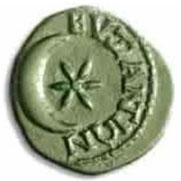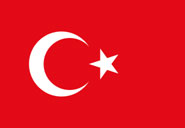Οι τελευταίες επιθυμίες του Μεγάλου Αλεξάνδρου…
19 Ιουνίου, 2010
Με αναφορά στο τοπίο της Μακεδονίας – Θεσσαλονίκη…

Γιάννης Σταύρου, Θεσσαλονίκη των χρωμάτων, λάδι σε καμβά
Μας το έστειλε με ηλεκτρονικό ταχυδρομείο ο φίλος Θ.Δ…
Δεν ξέρουμε αν περιέχει κάποια δόση αλήθειας ή ανήκει στο χώρο της ιστορικής ανεκδοτολογίας…
Όμως παρ’ όλα αυτά είναι ωραίο – η αλήθεια του είναι σταθερή κι ας μην είναι ιστορική…
Οι τρεις τελευταίες επιθυμίες του Μεγάλου Αλεξάνδρου
Ευρισκόμενος στα πρόθυρα του θανάτου, ο Μέγας Αλέξανδρος συγκάλεσε τους στρατηγούς του και τους κοινοποίησε τις τρεις τελευταίες επιθυμίες του;
1] Να μεταφερθεί το φέρετρό του στους ώμους από τους καλύτερους γιατρούς της εποχής.
2] Τους θησαυρούς που είχε αποκτήσει [ασήμι, χρυσάφι, πολύτιμους λίθους] να τους σκορπίσουν σε όλη τη διαδρομή μέχρι τον τάφο του.
3] Τα χέρια του να μείνουν να λικνίζονται στον αέρα, έξω από το φέρετρο, σε θέα όλων.
Ένας από τους στρατηγούς, έκπληκτος από τις ασυνήθιστες επιθυμίες, ρώτησε τον Αλέξανδρο ποιοι ήταν οι λόγοι.
Ο Αλέξανδρος του εξήγησε:
1] Θέλω οι πιο διαπρεπείς γιατροί να σηκώσουν το φέρετρό μου, για να μπορούν να δείξουν με αυτό τον τρόπο ότι ούτε εκείνοι δεν έχουν, μπροστά στο θάνατο, τη δύναμη να θεραπεύουν!
2] Θέλω το έδαφος να καλυφθεί από τους θησαυρούς μου, για να μπορούν όλοι να βλέπουν ότι τα αγαθά που αποκτούμε εδώ, εδώ παραμένουν!
3] Θέλω τα χέρια μου να αιωρούνται στον αέρα, για να μπορούν οι άνθρωποι να βλέπουν ότι :
ερχόμαστε με τα χέρια άδεια και με τα χέρια άδεια φεύγουμε, όταν τελειώσει για εμάς ο πιο πολύτιμος θησαυρός που είναι ο χρόνος!
ΝΑΙ! Η ΜΑΚΕΔΟΝΙΑ ΕΙΝΑΙ ΕΛΛΗΝΙΚΗ – ΨΗΦΙΣΤΕ!
14 Δεκεμβρίου, 2009

Γιάννης Σταύρου, Ροτόντα, Θεσσαλονίκη, λάδι σε καμβά
Στην παρακάτω Αμερικανική τοποθεσία, γίνεται «δημοσκόπηση» για το αν η Μακεδονία είναι Ελληνική ή όχι. Μπείτε, ψηφίστε και διαδώστε το σε όσους ξέρετε!
http://www.topix.com/forum/world/macedonia/TAAAAFN23PMGMJ147
Είναι πολύ απλό. Ούτε όνομα πρέπει να βάλετε, ούτε στοιχεία, ούτε τίποτε. Μόνο επιλέγετε το Yes και μετά βλέπετε το ως τώρα αποτέλεσμα. Έχουν μπει οι Σκοπιανοί και έχουν σαρώσει. ΣΤΕΙΛΤΕ ΤΟ!
ΠΩΣ ΦΤΙΑΧΤΗΚΕ Η ΤΟΥΡΚΙΚΗ ΣΗΜΑΙΑ;
18 Νοεμβρίου, 2009
Αν δεν ξέρετε, ορίστε η απάντηση:
Η Τούρκικη σημαία, και το αντίστοιχο «εθνικό σύμβολο» των Τούρκων, προέρχεται από ένα σύμβολο του Βυζαντίου, αλλά της αρχαιοελληνικής πόλης Βυζάντιον, που υπήρχε στην θέση της Κωνσταντινούπολης.
Αυτό το σήμα, που είναι πανάρχαιο και απαντάται ως λατρευτικό σύμβολο της θεάς Εκάβης, έγινε σύμβολο της πόλης του Βυζαντίου όταν ο Φίλιππος, πατέρας του Μεγαλέξανδρου, προσπάθησε να καταλάβει αυτή την πόλη, και μια νύχτα με συννεφιά, έστειλε πολεμιστές (σαν καταδρομική επιχείρηση) να περάσουν τα τείχη, για να αλώσουν την πόλη.
Ξαφνικά, εμφανίστηκε το φεγγάρι, οι εισβολείς έγιναν αντιληπτοί, και αποκρούστηκε η επίθεση…. Από τότε, και επειδή θεωρήθηκε ως θεϊκή βοήθεια προς την πόλη, έγινε σύμβολο της πόλης του Βυζαντίου.
Από εκεί έμεινε ως σύμβολο παραδοσιακά και στην Κωνσταντινούπολη, το βρήκε και ο Μωχάμεντ ο πορθητής (και οι επόμενοί του), και όπως χρησιμοποίησε τα πάντα που βρήκε από τη Βυζαντινή Αυτοκρατορία, για να δώσει αυτοκρατορική χροιά στην πλιατσικολογική Οθωμανική κατάκτηση, το έκανε ένα σύμβολο της Οθωμανικής κυριαρχίας, και έτσι έμεινε ως μουσουλμανικό σύμβολο….
 Η διπλανή φωτογραφία είναι από ένα κέρμα των Βυζαντίων και αν θα προσέξετε, το γράφει: ΒΥΖΑΝΤΙΩΝ
Η διπλανή φωτογραφία είναι από ένα κέρμα των Βυζαντίων και αν θα προσέξετε, το γράφει: ΒΥΖΑΝΤΙΩΝ
Αν ξέραμε την ιστορία μας, τουλάχιστον δεν θα ανεχόμασταν τα σημερινά ξεφτιλίκια…
Θα είχαμε τις απαιτούμενες απαντήσεις για όλες αυτές τις μα….. ..που μας σερβίρουν καθημερινά…
Αξίζει να το διαδώσετε!!!!!!!!!!!
—————————————————–
Από τη Λιάνα
Επιστολή για την Μακεδονία…
18 Φεβρουαρίου, 2009

Γιάννης Σταύρου, Θεσσαλονίκη, λάδι σε καμβά
Η παρακάτω επιστολή του καθηγητή S. Miller, με θέμα την “Μακεδονία”, εστάλη στο γνωστό έντυπο “Arhaeology Magazine”.
Αξίζει να την διαβάσουμε – και γιατί όχι – να την προωθήσουμε σε φίλους που ζούν στην Ελλάδα και στο εξωτερικό – ‘Ελληνες & ξένους…
January 22, 2009
Editor, Archaeology Magazine
36-36 33rd Street
Long Island City, NY 11106
U.S.A.
Dear Sir,
I opened the January/February issue of Archaeology today and eagerly turned to “A Letter from Macedonia” only to discover that it was actually a letter from ancient Paionia – the land north of Mt. Barmous and Mt. Orbelos. Livy’s account of the creation of the Roman province of Macedonia (45.29.7 and 12) makes clear that the Paionians lived north of those mountains (which form today the geographically natural northern limits of Greece) and south of the Dardanians who were in today’s Kosovo. Strabo (7. frag 4) is even more succinct in saying that Paionia was north of Macedonia and the only connection from one to the other was (and is today) through the narrow gorge of the Axios (or Vardar) River. In other words, the land which is described by Matthew Brunwasser in his “Owning Alexander” was Paionia in antiquity.
While it is true that those people were subdued by Philip II, father of Alexander, in 359 B.C. (Diodorus Siculus 16.4.2), they were never Macedonians and never lived in Macedonia. Indeed, Demosthenes (Olynthian 1.23) tells us that they were “enslaved” by the Macedonian Philip and clearly, therefore, not Macedonians. Isokrates (5.23) makes the same point. Likewise, for example, the Egyptians who were subdued by Alexander may have been ruled by Macedonians, including the famous Cleopatra, but they were never Macedonians themselves, and Egypt was never called Macedonia (and so far as I can tell does not seek that name today).
Certainly, as Thucydides (2.99) tells us, the Macedonians had taken over “a narrow strip of Paionia extending along the Axios river from the interior to Pella and the sea”. One might therefore understand if the people in the modern republic centered at Skopje called themselves Paionians and claimed as theirs the land described by Thucydides.
But why, instead, would the modern people of ancient Paionia try to call themselves Macedonians and their land Macedonia? Mr. Brunwasser (p. 55) touches on the Greek claims “that it implies ambitions over Greek territory” and he notes that “the northern province of Greece is also called Macedonia.” Leaving aside the fact that the area of that northern province of modern Greece has been called Macedonia for more than 2,500 years (see, inter alios, Herodotus 5.17; 7.128, et alibi), more recent history shows that the Greek concerns are legitimate. For example, a map produced in Skopje in 1992 (Figure 1) shows clearly the claim that Macedonia extends from there to Mt. Olympus in the south; that is, combining the ancient regions of Paionia and Macedonia into a single entity. The same claim is explicit on a pseudo-bank note of the Republic of Macedonia which shows, as one of its monuments, the White Tower of Thessalonike, in Greece (Figure 2). There are many more examples of calendars, Christmas cards, bumper-stickers, etc., that all make the same claim.
Further, Mr. Brunwasser has reported with approval (International Herald Tribune 10/1/08) the work of the “Macedonian Institute for Strategic Research 16:9”, the name of which refers “to Acts 16:9, a verse in the New Testament in which a Macedonian man appears to the Apostle Paul begging him: ‘Come over into Macedonia, and help us.’” But where did Paul go in Macedonia? Neapolis (Kavala), Philippi, Amphipolis, Apollonia, Thessaloniki, and Veroia (Acts 16:11-17:10) all of which are in the historic Macedonia, none in Paionia. What claim is being made by an Institute based in Skopje that names itself for a trip through what was Macedonia in antiquity and what is the northern province of Greece today?
I wonder what we would conclude if a certain large island off the southeast coast of the United States started to call itself Florida, and emblazoned its currency with images of Disney World and distributed maps showing the Greater Florida.
Certainly there was no doubt of the underlying point of “Macedonia” in the mind of U.S. Secretary of State Edward Stettinius on December 26, 1944, when he wrote:
“The Department [of State] has noted with considerable apprehension increasing propaganda rumors and semi-official statements in favor of an autonomous Macedonia, emanating principally from Bulgaria, but also from Yugoslav Partisan and other sources, with the implication that Greek territory would be included in the projected state. This government considers talk of Macedonian ”nation”, Macedonian “Fatherland”, or Macedonian “national consciousness” to be unjustified demagoguery representing no ethnic nor political reality, and sees in its present revival a possible cloak for aggressive intentions against Greece.”
[Source: U.S. State Department, Foreign Relations vol viii, Washington, D.C., Circular Airgram (868.014/26Dec1944)]
Mr. Brunwasser (a resident of Bulgaria), however, goes on to state, with apparent distain, that Greece claims “Alexander III of Macedon (Alexander the Great) . . . as Greek.”
This attitude mystifies me. What is there to “claim”? Alexander’s great-great-great grandfather, Alexander I, was certified as Greek at Olympia and, in the words of the father of history “I happen to know that [the forefathers of Alexander] are Greek” (Herodotus 5.22). Alexander’s father, Philip, won several equestrian victories at Olympia and Delphi (Plutarch, Alexander 4.9; Moralia 105A), the two most Hellenic of all the sanctuaries in ancient Greece where non-Greeks were not allowed to compete. If Philip was Greek, wasn’t his son also Greek?
When Euripides – who died and was buried in Macedonia (Thucydides apud Pal. Anth. 7.45; Pausanias 1.2.2; Diodorus Siculus 13.103) – wrote his play Archelaos in honor of the great-uncle of Alexander, did he write it in Slavic? When he wrote the Bacchai while at the court of Archelaos did he not write it in Greek even as it has survived to us? Or should we imagine that Euripides was a “Macedonian” who wrote in Slavic (at a date when that language is not attested) which was translated into Greek?
What was the language of instruction when Aristotle taught Alexander? What language was carried by Alexander with him on his expedition to the East? Why do we have ancient inscriptions in Greek in settlements established by Alexander as far away as Afghanistan, and none in Slavic? Why did Greek become the lingua franca in Alexander’s empire if he was actually a “Macedonian”? Why was the New Testament written in Greek rather than Slavic?
On page 57 of the so-called “Letter from Macedonia” there is a photograph of the author standing “before a bronze statue of Alexander the Great in the city of Prilep.” The statue is patently modern, but the question is whether the real historic Alexander could have read the Slavic inscription beneath his feet. Given the known historic posterity of Slavic to Greek, the answer is obvious.
While Mr. Brunwasser’s reporting of the archaeological work in Paionia is welcome, his adoption and promotion of the modern political stance of its people about the use of the name Macedonia is not only unwelcome, it is a disservice to the readers of Archaeology who are, I imagine, interested in historic fact. But then, the decision to propagate this historical nonsense by Archaeology – a publication of the Archaeological Institute of America – is a disservice to its own reputation.
Let it be said once more: the region of ancient Paionia was a part of the Macedonian empire. So were Ephesos and Tyre and Palestine and Memphis and Babylon and Taxila and dozens more. They may thus have become “Macedonian” temporarily, but none was ever “Macedonia”.
Allow me to end this exegesis by making a suggestion to resolve the question of the modern use of the name “Macedonia.” Greece should annex Paionia – that is what Philip II did in 359 B.C. And that would appear to be acceptable to the modern residents of that area since they claim to be Greek by appropriating the name Macedonia and its most famous man. Then the modern people of this new Greek province could work on learning to speak and read and write Greek, hopefully even as well as Alexander did.
Sincerely,
Stephen G. Miller
Professor Emeritus, University of California,
Berkeley
PS: For a more complete examination of the ancient evidence regarding Paionia, see I. L. Merker, “The Ancient Kingdom of Paionia,” Balkan Studies 6 (1965) 35-54
cc: C. Brian Rose, President, Archaeological Institute of America
Hillary Rodham Clinton, Secretary of State of the United States of America
Dora Bakoyiannis, Minister of Foreign Affairs of Greece
Antonis Samaras, Minister of Culture of Greece
Olli Rehn, European Commissioner for Enlargement
Erik Meijer, Member, European Parliament
ΥΠΟΓΡΑΨΤΕ ΤΗΝ ΕΚΚΛΗΣΗ
1 Μαρτίου, 2008
>>Οι οργανώσεις των ελλήνων της διασποράς ( http://www.greece.org ) προωθούν τη συλλογή υπογραφών<<
ΕΚΚΛΗΣΗ ΣΧΕΤΙΚΑ ΜΕ ΤΗΝ ΟΝΟΜΑΣΙΑ ΤΟΥ ΚΡΑΤΟΥΣ ΤΩΝ ΣΚΟΠΙΩΝ
- Προς: Πρόεδρο Ηνωμένων Πολιτειών, Γερουσία ΗΠΑ, Αντιπροσωπευτικό Σώμα Ηνωμένων Πολιτειών, Ηνωμένα Έθνη, Ευρωπαϊκή Κοινότητα, Πρωθυπουργό Ελλάδας, Υπουργό Εξωτερικών Ελλάδας
- Αντίγραφα: Προς Μέλη των Κοινοβουλίων όλου του κόσμου και των ΜΜΕ
Οι Έλληνες και οι Φιλέλληνες οπουδήποτε βρίσκονται και ζουν καταγγέλλουν και καταδικάζουν την απόφαση του Προέδρου των ΗΠΑ George W. Bush να αναγνωρίσει την ΠΓΔΜ (πρώην Γιουγκοσλαβική Δημοκρατία της Μακεδονίας) ως «Δημοκρατία της Μακεδονίας».
Η μονομερής αυτή απόφαση των ΗΠΑ, να αναφέρονται στην ΠΓΔΜ ως «Δημοκρατία της Μακεδονίας», προσβάλλει όλους τους Έλληνες οπουδήποτε βρίσκονται, και δεν συντελεί σε τίποτα άλλο εκτός από δημιουργία περαιτέρω διαιρέσεως στα Βαλκάνια.
Η Μακεδονία ως ιστορικός, γεωγραφικός και πολιτιστικός όρος είναι για χιλιάδες έτη ένα αδιάσπαστο μέρος του ελληνισμού. Το κραυγαλέο γεγονός της Μακεδονικής ταυτότητας που είναι ελληνική, επιβεβαιώνεται από τις περικοπές της Παλαιάς και Καινής Διαθήκης, το Ταλμούδ, από ιστορικά κείμενα της αρχαίας εποχής, από συνθήκες, πολέμους και απογραφές από την αρχαιότητα έως σήμερα. Οι ιστορικοί αναφέρονται στην αυτοκρατορία του Μέγα Αλεξάνδρου και τα έτη που ακολούθησαν ως Ελληνιστική Περίοδο, αποδεικνύοντας χωρίς καμιά αμφιβολία ότι η Μακεδονική ταυτότητα και πολιτισμός είναι ταυτόσημα και αδιάσπαστα στοιχεία με την Ελληνική ταυτότητα και πολιτισμό.
Πέρα από την αδιαφορία των ιστορικών γεγονότων, η παρούσα μονομερής απόφαση από την Αμερικανική Κυβέρνηση, αγνοεί το διάφορο Ψηφίσματα του ΟΗΕ σχετικά με οποιοδήποτε μελλοντικό όνομα που χρησιμοποιείται από την ΠΓΔΜ, όπως και τις εγκεκριμένες συζητήσεις μεταξύ της Ελλάδας και ΠΓΔΜ κάτω από την αιγίδα του ΟΗΕ, και περιπλέκει ανασκόπως την ήδη φορτισμένη κατάσταση στα Βαλκάνια.
Εάν οι Ηνωμένες Πολιτείες εμμένουν στην επικράτηση της δημοκρατίας και επιδιώκουν την επιβολή του δικαίου, παροτρύνουμε τον Πρόεδρο George W. Bush και την κυβέρνηση των ΗΠΑ να επανεξετάσουν τη θέση τους σε αυτό το ευαίσθητο και πλήρως σημαντικό ζήτημα όχι μόνον για την Ελλάδα και την ΠΓΔΜ, αλλά κυρίως για τη σταθερότητα στα Βαλκάνια. Για το συμφέρον των ΗΠΑ προτρέπουμε τον Πρόεδρο να επανεξετάσει αυτήν την λανθασμένη πολιτική, που βασίστηκε σε ανακριβείς ιστορικές αλήθειες και να ζητήσει από το Υπουργείο Εξωτερικών να αποσύρει την αναγνώριση της ΠΓΔΜ ως Μακεδονία και να συστήσει στην ΠΓΔΜ τη συνέχιση του διπλωματικού διαλόγου με την Ελλάδα για το ζήτημα του ονόματος, σύμφωνα με τις οδηγίες του ΟΗΕ και της ΕΕ.
Το όνομα «Μακεδονία» ή οποιοδήποτε παράγωγό του δεν είναι δυνατόν να απονεμηθεί στην ΠΓΔΜ από οποιαδήποτε κυβερνητική αρχή του κόσμου επειδή απλά δεν είναι δικό τους για να το χαρίζουν. Ο όρος «Μακεδονία» είναι συνυφασμένος με την Ελλάδα και επομένως είναι ένα αδιάσπαστο μέρος της ελληνικής ταυτότητας και κληρονομιάς.
____________________________________________________
* Εφόσον συμφωνείτε με το περιεχόμενο της παραπάνω έκκλησης, υπογράφετε μέσω της ηλεκτρονικης διεύθυνσης:
http://www.greece.org/themis/macedonia/signgr.htm


